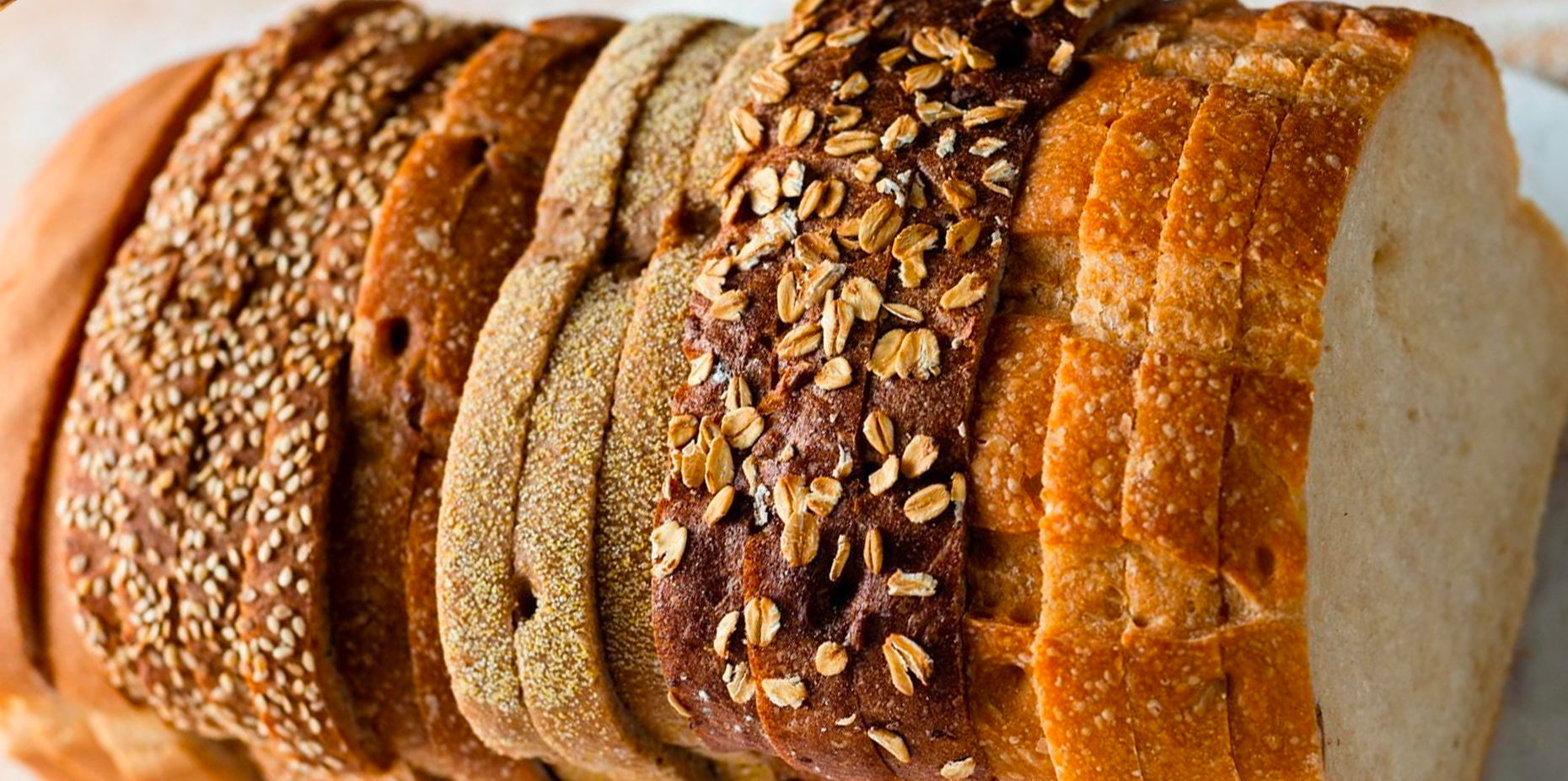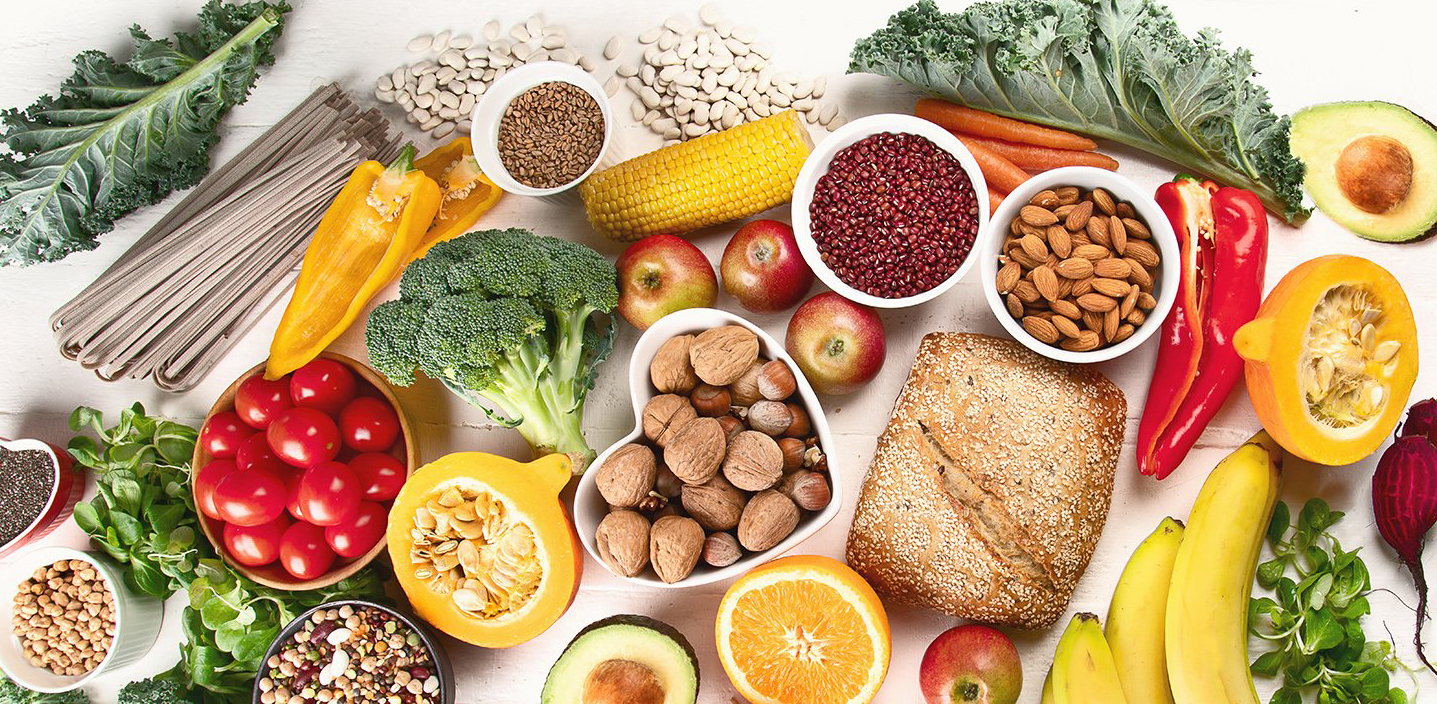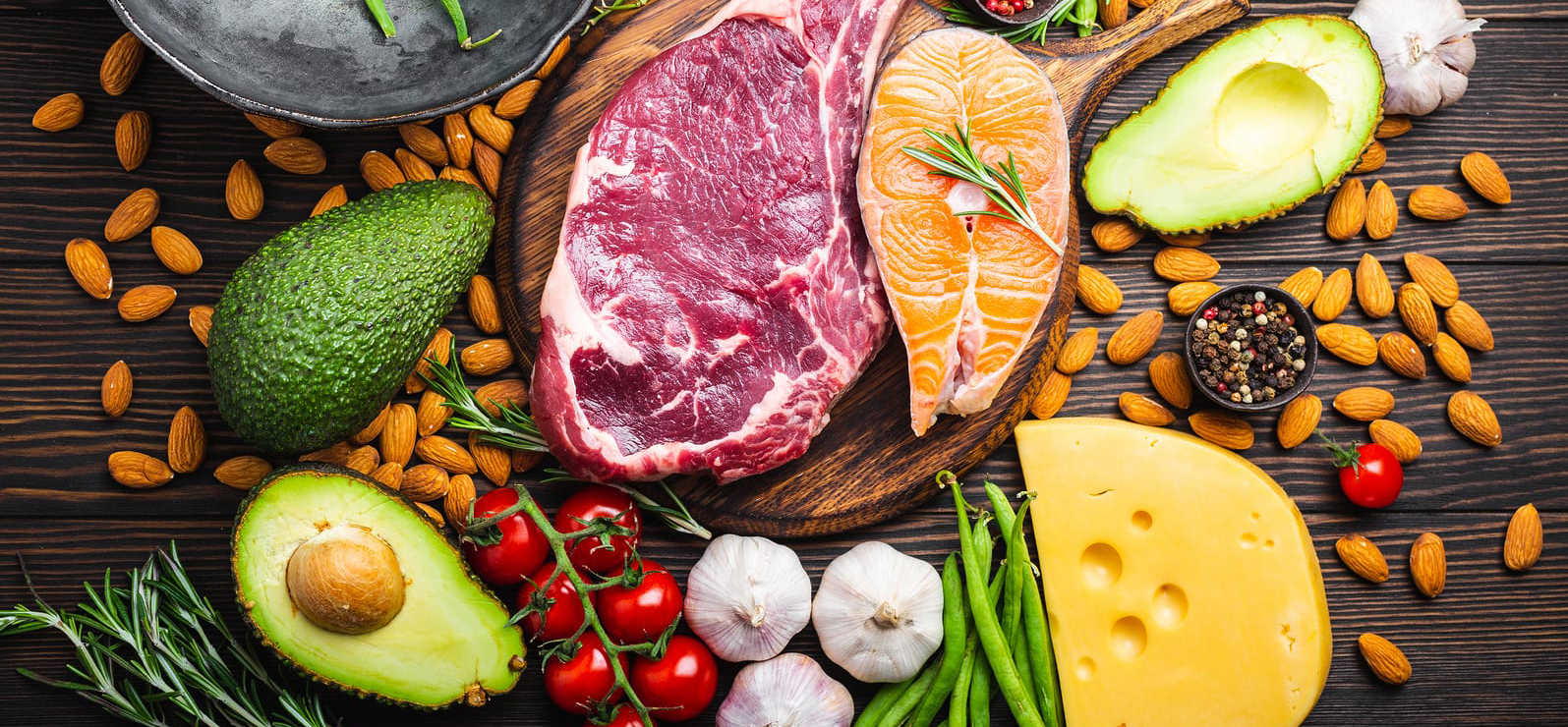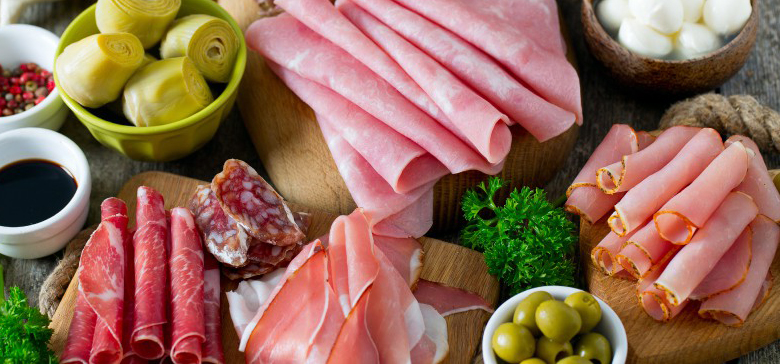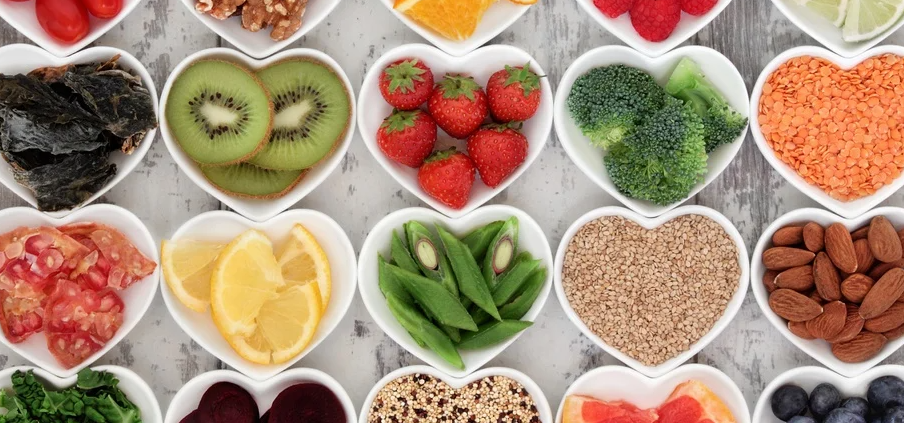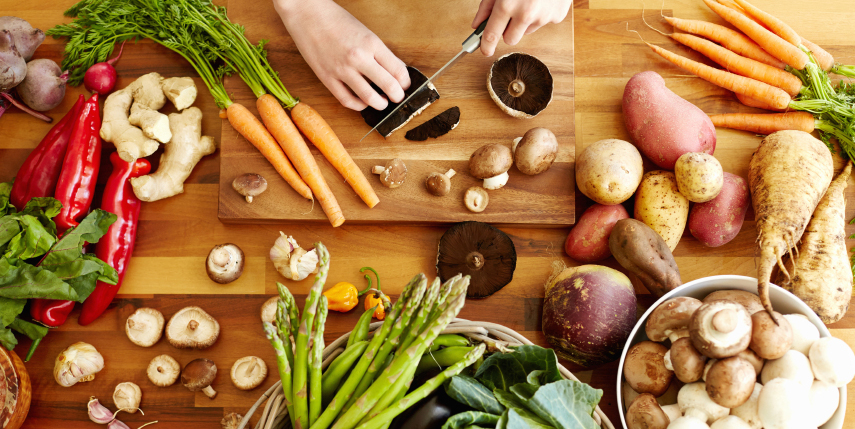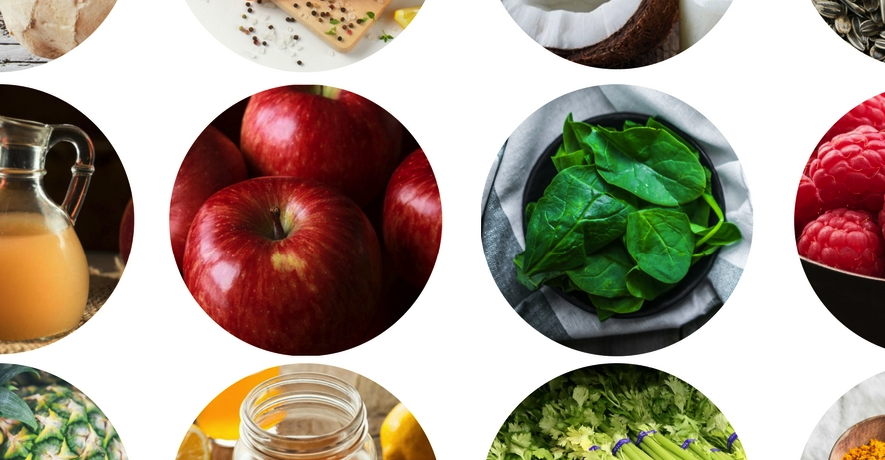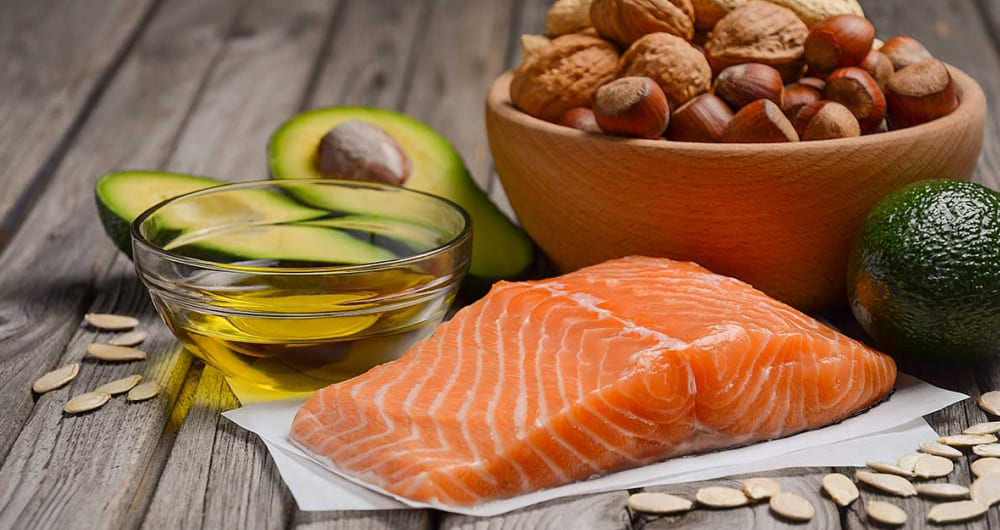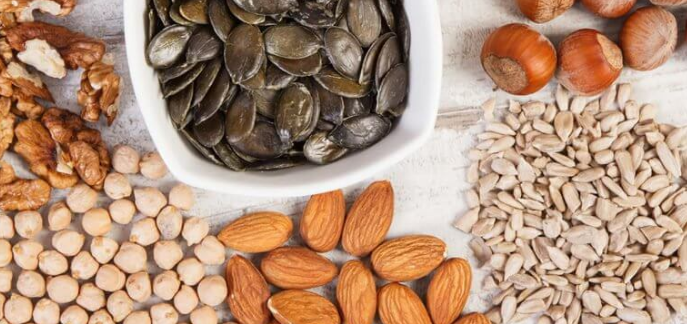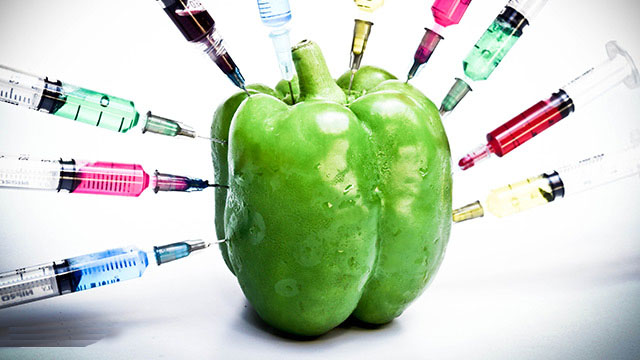The gut microbiome is full of about 100 trillion types of bacteria, good and bad.
You need a generous amount of good bacteria for overall health and wellbeing. Why? Because over 70 percent of your immune system resides in the gut.
The quick solution is probiotics. Probiotics improve good gut health by replenishing good bacteria. Many factors can affect healthy gut bacteria, such as antibiotic use (1), certain medications like antidepressants, (2) a nutrient-poor diet, and more. One way to avoid this is by taking a probiotic when you are taking antibiotics.
You may hear about them often, probably in the form of supplements. But what if all you need are some Probiotic foods instead? Probiotic supplements can be beneficial for many health issues, such as chronic constipation, (3) immune health, (4) skin health, (5) and much more. However, you can’t supplement your way out of a healthy diet. Healthy food must always come first. That said, supplements can help many people who need extra support, too.
Table of Contents
Probiotics Foods
The good news is probiotic foods are easy to introduce in your diet. And you may be eating many of them already. Certain foods contain different strains of bacteria that reside in the gut. Think about how much tender loving care 100 trillion bacteria need. Try to keep that in mind when you review how many strains each food has below.
Then, after you start the new foods, take time to process how you feel after. Did your body respond well to the food? Do you feel lighter, more energized, or has some part of your health improved? Pay careful attention to what foods work well for your body.
1. Yogurt
Probiotics are plentiful in this common breakfast food. A standard serving of yogurt contains four to six strains of healthy bacteria, or about one billion colony forming units (CFUs), but that can differ among brands and types.
Yogurt is a healthy way to add in more good bacteria to support a healthy gut microbiome. Yogurt can be unhealthy if you choose a brand with too much extra unnecessary sugar. Many common brands have fruit additives, but with those are a lot of added sugar. Avoid this by buying yogurt plain instead. Then, add the serving of your favorite fruit like blueberries or strawberries.
You can add yogurt to your favorite breakfast, too. You don’t have to eat it by itself. Add a little to granola, cereal, or oatmeal for a change of pace. Throw in some healthy foods for added support too. Some ideas are cacao nibs, seeds, nuts, almond butter, and more.
2. Kimchi
Kimchi is a traditional Korean side dish that you can add to many dishes. Fermented cabbage with seasonings and spices is usually what the typical kimchi is.
The flavor of kimchi is certainly not for everyone. It can be very spicy, depending on the type. This Japanese side dish is an excellent source of probiotics because of the fermentation. It’s a great way to change up your diet and add some new flavors to your cuisine.
You may be wondering, how do I add this to my diet? Here are a few ways to get you started. You can eat kimchi plain, with rice, in a grain bowl with eggs and other vegetables, like a homemade pancake, in a stew, and more. Get creative with this probiotic-rich health food.
3. Pickles
Other common healthy probiotic foods are pickles. Pickles are fermented cucumbers, after all. They make an easy addition to many proteins, a great salad addition, and they are an excellent snack for a mid-day pick me up.
Pickles typically contain around 1 billion CFU strains of good bacteria. Try adding some pickles to your diet today but be careful about the type you buy. Many pickles often come with unnecessary additives and sugar like high fructose corn syrup. This unhealthy addition defeats the healthy concept of probiotic pickles.
Instead, buy pickles without any extra ingredients. The only ingredients you should see should be food-based like vinegar. Are you unsure how to add more pickles to your diet? Use pickles as the ultimate snack by adding them to crackers and dip. You can make an easy pickle dip with cream cheese, pickle juice, pickles, and garlic powder for a healthy crunch and flavor.
4. Pickled Vegetables
Pickled vegetables are one of the easiest ways to incorporate more probiotics into your diet. If it’s a vegetable, you can pickle it. Some easy and tasty vegetables to pickle include celery, carrots, cabbage, ginger, cucumbers (to make pickles), red onion, green beans, and more.
All you need to begin is a sealed jar, sugar, vinegar, herbs and spices, garlic, salt, and vinegar. You can use white, rice, or apple cider vinegar. The recipe instructions can be very simple. Don’t feel like you have to go through all the steps of online pickling.
If you want a simple pickled vegetable, it’s extremely easy if you have all of these ingredients handy. After you pickle your vegetable, you will get the health benefits of that vegetable along with the potent power of healthy probiotics to support your gut microbiome even further.
5. Kombucha
Kombucha is flying off the shelves lately for its many health benefits and tasty flavors. Kombucha is fermented black tea with added flavors like ginger, cherry, mango, and even ones like root beer.
This fizzy drink packs in a ton of probiotics due to its fermentation process. You can even make kombucha at home. All you need is a live scobe and tea. However, it can be a complicated process, so make sure you do all the required research to make a safe drink.
Kombucha is a great alternative to many overly sugary beverages that contribute to many chronic diseases such as soda. Soda has a similar taste to soda due to the carbonation and a whole lot of flavor. Since kombucha has become such a popular drink, many different flavors are emerging. Be sure you don’t pick one with too much extra sugar. The great thing about kombucha is you can drink just half the bottle or less and feel satisfied without getting more than four to six grams of sugar.
6. Tempeh
Tempeh is a form of fermented soybeans that is high in many strains of probiotics.
This nutrient-dense soy food is high in protein and many vitamins and minerals. It can also have a similar texture to meat when cooked, so it’s a great choice for vegetarians or vegans.
Tempeh goes well in stir fries, and as a replacement for any type of meat. It’s necessary to flavor plain tempeh because it’s typically quite bland. An easy way to flavor it is to soak in your favorite sauce mixture overnight then cook it the next day.
7. Sauerkraut
Sauerkraut is cabbage after it’s gone through the fermentation process.
It has many different probiotic strains, ranging from 1,000 to 100 million CFUs. Cabbage is already high in many vitamins and minerals, so after the fermentation process, it’s a portion of particularly potent food for full-body health.
You can add sauerkraut to so many dishes. It’s a polish tradition to add it to meat dishes, and it goes quite well together. You can even eat it with fish like sardines or tuna.
8. Kefir
Kefir is typically a fermented milk drink made with yeast and bacteria. But water kefir is also available for those who can’t consume dairy.
This drink is high in many different probiotic strains, including Lactobacillus acidophilus, Streptococcus thermophilus, Bifidobacterium bifidum, Lactobacillus kefiranofaciens, and Lactococcus lactis, and more. The antimicrobial properties and strains in kefir make it a powerful immune-boosting probiotic. (6)
Kefir is almost like drinkable yogurt with a bit of a sour taste. However, many come flavored now and taste like drinkable yogurt. If you like yogurt on the thinner side, this probiotic food is for you.
9. Miso
Miso is a fermented and salty paste that is in many Japanese dishes. The most known Japanese miso dish is miso soup with tofu and seaweed.
Miso is remarkably healthy for many reasons. The probiotic strains in miso are so plentiful that research suggests it can help to promote healing for digestive disorders such as inflammatory bowel disease and ulcerative colitis. (7)
The easiest way to incorporate miso into your diet is to add the paste to your cooking routine or buy premade miso soup packets for a simple and quick soup.
10. Soft Cheeses
Although soft cheeses like gouda, cheddar, and goat contain probiotics, there is some research it can’t reach the gut microbiome in time to benefit human health.
But there is some home. A study showed there was a survival rate among the bacteria found in soft cheeses, Lactobacillus acidophilus, and Lactobacillus rhamnosus. (8) Soft cheeses are high in many vitamins and minerals, so it’s ok to add them to your diet.
As long as you make sure you are practicing portion control, some cheese is ok. Keep in mind that cheese can be extremely addicting, so monitor your intake. It’s perfectly healthy to leave the cheese out if you can’t tolerate dairy, as well. You can get every vitamin, mineral, and probiotic from plenty of other foods, too.
11. Sourdough Bread
Even bread can have beneficial bacteria, but that only includes some sourdough bread. And it contains much less than the typical probiotic foods on this list.
Even though the fermentation process with lactobacillus is like sourdough bread, a lot of the culture falls off during the baking process. However, sourdough bread does have some probiotic and prebiotic properties. (9)
It’s one of the healthiest loaves of bread you can choose for several reasons. Because it has probiotic cultures, it can promote better digestion. Plus, sourdough bread typically has less gluten than other bread because of the way it is processed. Many people are sensitive to gluten, so the lack of it in sourdough can help with better digestion as well.
12. Acidophilus Milk
Acidophilus milk is a type of probiotic milk that contains a major bacteria strain called Lactobacillus. This bacterium is important for healthy functioning in many parts of the body. These include the health of the skin, mouth, nasal passages, and more.
The bacteria called lactobacillus acidophilus in this type of milk can also help to promote many health benefits. Some include lower cholesterol (10), can support irritable bowel syndrome, aid in weight loss, and more.
It has all the health benefits of milk, such as vitamins A, D, calcium, and more. It’s milk with an extra boost of beneficial bacteria to help support gut health.
Conclusion
Probiotics are an important part of a healthy diet. They help to boost the immune system, better manage chronic conditions, improve skin health, and much more. Try to incorporate some of these foods into your diet. Keep eating the common foods high in probiotics that work well for your body, too. Perhaps you can add some new ones to diversify the healthy bacteria in your gut.
The gut microbiome is full of trillions of bacteria, so it is up to you to support your healthy bacteria every day. That way, you can help prevent chronic disease and other common health issues.
If you suffer from frequent infections, colds, skin issues such as acne, eczema, psoriasis, and more, see if extra probiotic foods can help. Or ask your doctor about starting a supplement for extra support.



